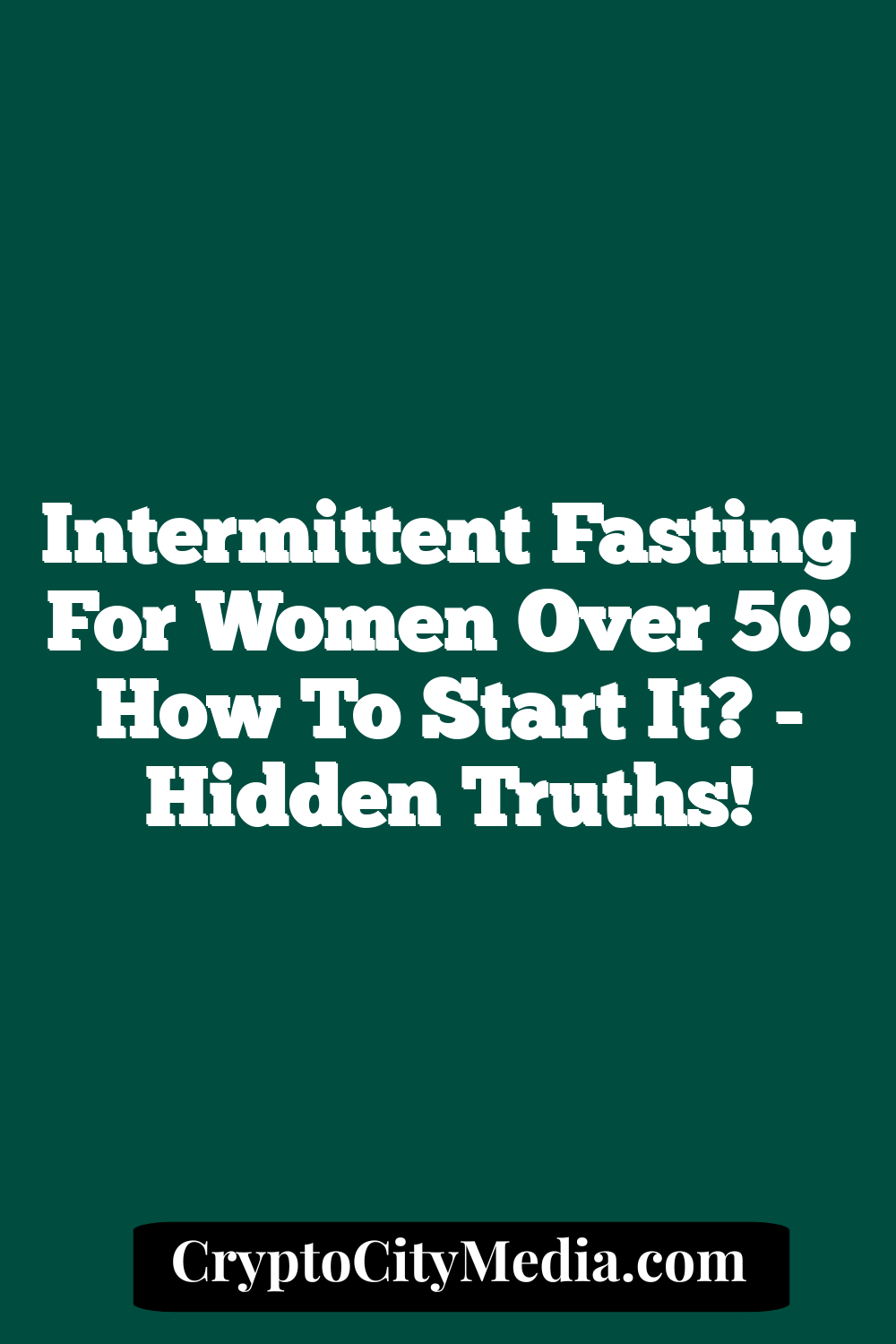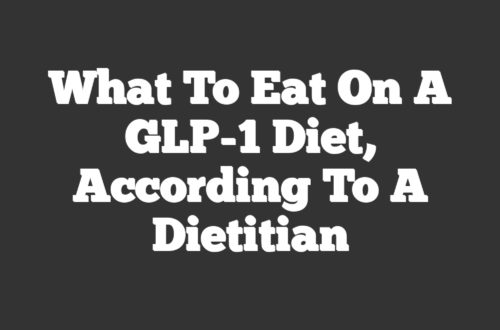As women age, especially after the age of 50, weight gain becomes a common challenge. Hormonal changes, a slower metabolism, and lifestyle adjustments contribute to difficulty in maintaining a healthy weight. Intermittent fasting (IF), a popular weight loss method, offers a structured approach that has been supported by various scientific studies. This post will explore the reasons behind weight gain after 50, how intermittent fasting helps, how women can get started, and what alternative strategies are available if intermittent fasting is not suitable.
Why Women Gain Weight After 50
Hormonal Changes and Weight Gain
One of the main reasons for weight gain in women over 50 is hormonal imbalance, particularly the decline in estrogen levels during and after menopause. Estrogen plays a significant role in fat distribution. When estrogen levels drop, fat tends to accumulate around the abdomen. A study in The Journal of Clinical Endocrinology & Metabolism found that postmenopausal women experience an increase in central body fat, leading to belly fat that many women struggle with after 50.
Slower Metabolism and Muscle Loss
A slower metabolism is another reason women over 50 gain weight. Research from The American Journal of Clinical Nutrition shows that the body’s metabolic rate decreases by about 1-2% per decade, meaning fewer calories are burned at rest. In addition, sarcopenia, or the loss of muscle mass with age, contributes to this metabolic slowdown. Muscle burns more calories than fat, so the reduction in muscle mass reduces calorie-burning efficiency.
Lifestyle Changes and Increased Stress
Lifestyle factors also play a role in weight gain. Many women experience a reduction in physical activity, increased stress, and disrupted sleep patterns. Elevated stress can lead to increased cortisol levels, which causes the body to store fat, particularly around the waist. Poor sleep has been linked to insulin resistance, which further hinders the body’s ability to manage fat and sugar, leading to weight gain.
How Intermittent Fasting Helps Women Over 50
Regulating Insulin Levels and Fat Loss
Intermittent fasting can be an effective tool for addressing insulin resistance, a common issue for women over 50. Insulin resistance makes it harder for the body to process sugars and often leads to fat accumulation, particularly around the belly. Intermittent fasting helps by allowing insulin levels to drop, prompting the body to burn stored fat for energy. A study published in Obesity found that intermittent fasting improves insulin sensitivity, which helps the body lose weight and reduces the risk of type 2 diabetes.
Intermittent fasting also promotes fat loss by shifting the body’s energy source from glucose to stored fat. During fasting, the body enters a state of ketosis, where it begins to burn fat for energy. According to a study published in The New England Journal of Medicine, intermittent fasting increases fat burning, leading to significant reductions in abdominal fat over time. This is particularly beneficial for women over 50 who struggle with stubborn belly fat.
Improving Metabolic Flexibility and Hormonal Balance
As women age, their metabolic flexibility—the ability to switch between burning carbohydrates and fats for fuel—diminishes. Intermittent fasting helps improve this flexibility. A study in The American Journal of Clinical Nutrition demonstrated that intermittent fasting improves metabolic markers such as blood sugar levels and cholesterol, helping women maintain a healthy metabolism.
Intermittent fasting also helps reduce cortisol levels, which are often elevated due to chronic stress. Lower cortisol levels contribute to reduced abdominal fat accumulation. A study in Psychoneuroendocrinology showed that intermittent fasting effectively reduced stress and lowered cortisol levels, making weight loss more manageable for women over 50.
Preserving Muscle Mass While Losing Weight
Unlike traditional calorie-restricted diets, which can lead to muscle loss, intermittent fasting helps preserve muscle mass. This is especially important for women over 50, who need to maintain muscle mass to keep their metabolism functioning efficiently. By focusing on nutrient-dense foods and sufficient protein intake during eating windows, women can maintain muscle mass while benefiting from fat loss.
How to Get Started With Intermittent Fasting for Women Over 50
Choosing a Fasting Schedule
For women over 50, starting with a manageable fasting schedule is important. The 12:12 method, where you fast for 12 hours and eat within a 12-hour window, is a good starting point. As your body adapts, you can gradually move to more extended fasting periods like 16:8 (fast for 16 hours, eat within an 8-hour window) or 18:6.
Focusing on Nutrient-Dense Foods
What you eat during your eating window is crucial for success with intermittent fasting. Focus on whole, nutrient-dense foods such as lean proteins, healthy fats, whole grains, and vegetables. Protein is essential for preserving muscle mass, while healthy fats and fiber-rich foods help you feel full and satisfied during your eating window.
Staying Hydrated
Hydration is key when practicing intermittent fasting. Drinking water helps curb hunger and supports digestion during fasting periods. Incorporating herbal teas and water-rich vegetables can also help you stay hydrated throughout the day.
Incorporating Physical Activity
Exercise is an essential part of any weight loss plan. Combining intermittent fasting with regular physical activity, especially strength training, will help preserve muscle mass and improve overall fitness. Strength training, in particular, is important for maintaining muscle mass as you age, while cardio helps burn calories and boost metabolism.
Scientific Evidence Supporting Intermittent Fasting for Women Over 50
Numerous scientific studies highlight the benefits of intermittent fasting for women over 50. A 2020 study published in Cell Metabolism found that intermittent fasting significantly improved insulin sensitivity, reduced blood pressure, and promoted weight loss, especially in individuals with metabolic syndrome, which is common among postmenopausal women.
Another study, published in The American Journal of Clinical Nutrition, demonstrated that intermittent fasting helps reduce fat mass while preserving lean muscle, an essential factor for women over 50. This is particularly relevant for postmenopausal women who are at higher risk of muscle loss due to aging.
Research published in The Journal of Nutrition shows that intermittent fasting improves various metabolic markers, including blood sugar and cholesterol levels, which are crucial for reducing the risk of chronic diseases like heart disease and diabetes in women over 50.
Alternatives to Intermittent Fasting for Women Over 50
While intermittent fasting offers numerous benefits, it is not suitable for everyone. Some women may find it difficult to adhere to fasting schedules, or they may have health conditions that make fasting unsafe. Fortunately, there are several alternative weight management strategies for women over 50.
The Mediterranean Diet
The Mediterranean diet emphasizes whole grains, lean proteins, healthy fats (such as olive oil), and plenty of fruits and vegetables. This balanced approach has been shown to promote heart health and weight loss while helping balance hormones. A study published in Nutrients found that the Mediterranean diet is particularly beneficial for postmenopausal women in reducing cardiovascular risk factors and maintaining a healthy weight.
Low-Carbohydrate Diets
Low-carbohydrate diets, such as the ketogenic diet, can also help women over 50 manage their weight. By limiting carbohydrates, the body shifts into fat-burning mode, which can help reduce insulin resistance and abdominal fat. This approach may be helpful for women who have difficulty with intermittent fasting but still want to lose weight and manage their blood sugar levels.
Final Thoughts
Intermittent fasting provides a powerful, science-backed tool for women over 50 looking to lose weight, balance hormones, and improve overall health. By addressing key factors such as insulin resistance, hormonal imbalances, and metabolic decline, intermittent fasting can lead to significant weight loss and health improvements. However, for those who find intermittent fasting unsuitable, alternatives like the Mediterranean diet, low-carb eating, and mindful eating offer other effective paths to weight management. By choosing the right approach and incorporating regular exercise, women over 50 can maintain a healthy weight and enjoy improved well-being.

Age is not a barrier to health and vitality—embrace the journey, and let your body thrive with the wisdom of experience.
Dr. Christine Northrup





